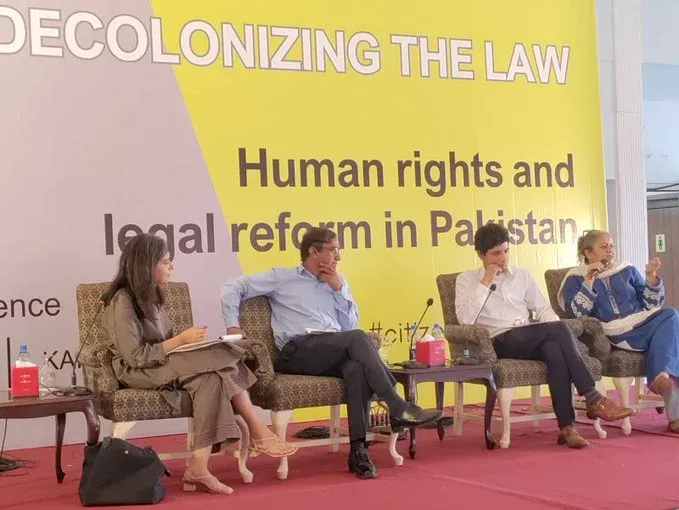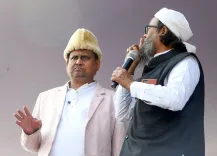How Do Colonial-era Laws Affect Citizenship in Pakistan?

Synopsis
Key Takeaways
- Colonial-era laws still impact Pakistan's legal framework.
- Vulnerable groups are treated as subjects rather than citizens.
- Calls for legal reform emphasize safeguarding rights.
- Freedom of expression is under threat from oppressive laws.
- Women's rights are compromised by colonial practices.
Islamabad, Sep 5 (NationPress) The Human Rights Commission of Pakistan (HRCP) emphasized the enduring influence of colonial-era legal frameworks on the nation's judicial and political landscapes, significantly impacting vulnerable communities and treating individuals as “subjects rather than citizens”.
This assertion was made during a conference entitled ‘Decolonizing the Law: Human Rights and Legal Reform in Pakistan’, organized by the HRCP in Karachi, attended by a diverse group of lawyers, journalists, academics, and advocates for human rights.
In his keynote speech, former Justice Maqbool Baqer of Pakistan articulated that the nation’s judicial framework is fundamentally designed “to control people rather than protect their rights”. He advocated for the abolition of laws that penalize dissent, the integration of compassion into legal practices, and the reinforcement of judicial independence throughout the country.
“During the initial plenary, attorney Sara Malkani pointed out that sedition and preventive detention laws are reminiscent of colonial control strategies, while researcher Nazish Brohi noted the state's ongoing ‘civilizing mission’ as a lingering colonial practice,” stated an HRCP press release.
“Journalist Akbar Notezai remarked that Balochistan is still regarded as ‘a colony’, referencing issues like resource extraction and rampant disappearances. Attorney Asfandyar Warraich highlighted the significance of freedom of assembly, warning against newly proposed laws that could limit peaceful protests,” the statement elaborated.
HRCP chairperson Asad Butt informed attendees that laws restricting freedoms are swiftly passed through Pakistan's legislative bodies, while those aimed at benefiting the populace often stall.
On the topic of freedom of expression, Pakistani digital rights advocate Farieha Aziz, along with lawyers Momna Taufeeq, Simra Sohail, Sibghat Sheikh, and Asfand Katchela, criticized the government for employing the Prevention of Electronic Crimes Act (PECA) and sedition laws as means of oppression.
HRCP Council member Sohail Sangi expressed that digital repression represents “a modern version of colonial controls on the press” within Pakistan.
Furthermore, HRCP staffer Salman Farrukh and attorney Aliza Masood revealed how colonial laws have cemented practices like forced marriage and the denial of women’s consent, while lawyer Hareem Godil traced the origins of blasphemy laws from their colonial roots to their current misuse.
HRCP Council member Mahnaz Rahman illuminated the challenges faced by women in Pakistan against both patriarchal and colonial systems, while another lawyer, Salahuddin Ahmed, called for judicial awareness and protections to prevent the misuse of laws against women and minorities.
Concluding the conference, Sindh Assembly deputy speaker Anthony Naveed emphasized the importance of scrutinizing proposed laws affecting the rights and freedoms of religious communities in Pakistan to ensure they serve the purpose of “protecting rather than burdening vulnerable groups”.










